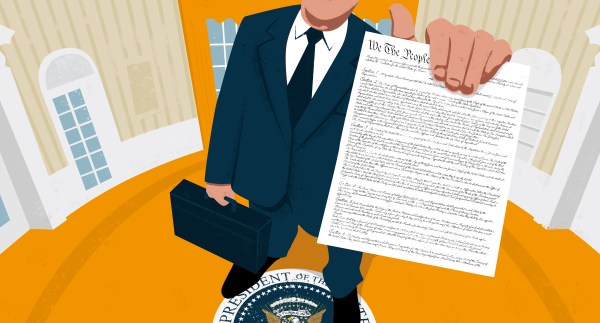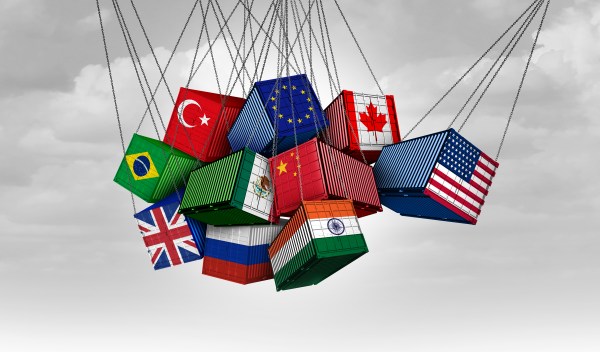Hello and happy Saturday. It’s been a big week in the Ohio bureau. We had “senior night” for our son’s high school baseball team on Monday, and he turned in a (nearly) complete game one-hitter. I managed not to cry when the coach came out with one out left in the last inning and sent the five seniors off together. Last night, our oldest son shared some very happy news: He popped the question to his girlfriend, and she said yes! All of which is to say: We had a much better week than Pete Hegseth.
On Tuesday, Michael Warren reported that morale is low at the Pentagon amid the ongoing fallout from the Signal group chat scandal. In March, Hegseth shared operational details of a U.S. strike on the Houthis in Yemen in a group chat to which Atlantic editor Jeffrey Goldberg had been added. News broke last weekend that Hegseth also shared those details in a separate chat that included his wife, his brother, and his personal attorney. But that’s not all:
In the last week, Hegseth has fired most of his inner circle of advisers, ostensibly in response to an investigation into leaks. Joe Kasper, Hegseth’s chief of staff, who called for the investigation, is also reportedly leaving for another post at the department. (Ullyot insisted in his op-ed that he left voluntarily, though independent reporting has suggested otherwise.) Meanwhile, two people with knowledge of the department’s inner functions say much of the policy work there has ground to a halt, with decision-makers among the Pentagon’s civil servants unclear about how to implement President Donald Trump’s agenda without more direction from the secretary.
Michael writes that with the exception of a pledge to cut 8 percent of the defense budget, there hasn’t been much in the way of policy or direction from Hegseth, and he “spends a lot more time than his predecessors in the job on social media and doing television hits. Some in the building have taken to calling him the ‘influencer secretary.’”
Kevin D. Williamson wrote that Hegseth isn’t the only former Fox News contributor in Trump’s circle to land on the hot seat. Independent journalist Anthony Clark reported that Janette Nesheiwat, a former Fox News contributor nominated as surgeon general, lied about her medical background. Dan Bongino, the deputy director of the FBI, also tried to get out ahead of a supposedly forthcoming and potentially embarrassing report from the New York Times by admitting that he’d been injured while sparring with an FBI trainer. Kevin also noted that Homeland Security Secretary Kristi Noem—“who is not a former television personality but who seems to be positioning herself for a future in show business,” as he put it—lost a purse containing $3,000 at a Washington D.C. restaurant.
That’s a lot of questionable behavior and incompetence for one paragraph. As Kevin writes, “If you work for the Trump administration, Trump has thought about firing you at least once before his second Diet Coke of the day.”
It was also a big week for The Dispatch itself. We acquired SCOTUSblog, the “go-to authority on the Supreme Court,” and we’re thrilled to welcome founder Amy Howe and her team to the The Dispatch family. Read more below, and have a great weekend!

The Dispatch Acquires SCOTUSblog

Free Speech Crumbles in Europe

A New McCarthyism
Best of the Rest

My Presidential Candidacy

A Pope of Inclusion and Polarization

AI Will Speed Up the Sex Wars

J.D. Vance’s Claims About the Number of Illegal Immigrants in the U.S. Are Exaggerated

An Absurd Rationale for Provoking a Constitutional Crisis

Trump’s Team of Losers













Please note that we at The Dispatch hold ourselves, our work, and our commenters to a higher standard than other places on the internet. We welcome comments that foster genuine debate or discussion—including comments critical of us or our work—but responses that include ad hominem attacks on fellow Dispatch members or are intended to stoke fear and anger may be moderated.
With your membership, you only have the ability to comment on The Morning Dispatch articles. Consider upgrading to join the conversation everywhere.